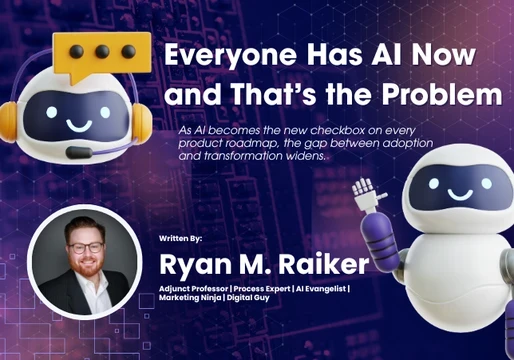BT has revealed its plans to cut 55,000 jobs by the end of the decade and replace up to a fifth of its workforce with AI in an effort to cut costs and bolster profitability.
The British telecoms giant believes the layoffs will allow it to become a “leaner business with a brighter future" and take advantage of new technologies and AI automation.
"Whenever you get new technologies you can get big changes. For a company like BT there is a huge opportunity to use AI to be more efficient," said chief executive Philip Jansen.
The company has embarked on the rollout of full-fibre broadband and 5G infrastructure and seeks to benefit from new digital trends such as AI, which it could utilise to make areas such as call handling, and network diagnostics more automated.
BT said its total number of workers will reduce from 130,000 to between 75,000 and 90,000 by its 2030 financial year at the latest. Some 30,000 of its current employees are contractors.
The announcement came as it reported a 12 per cent drop in profits of £1.7bn for the year to April. Its shares fell more than 7 per cent after its results fell short of expectations.
The Communication Workers Union (CWU), which launched a series of strikes over pay at BT last year, said the company's jobs announcement comes as "no surprise"
“The introduction of new technologies across the company along with the completion of the fibre infrastructure build replacing the copper network was always going to result in less labour costs for the company in the coming years,” the CWU said in a statement.
"However, we have made it categorically clear to BT that we want to retain as many direct labour jobs as possible and that any reduction should come from sub-contractors in the first instance and natural attrition."
Humans Replaced by AI
The announcement comes weeks after IBM revealed that it expected to replace around 7,800 workers with AI and will freeze hiring for roles it believes will be automated by the technology in the coming years.
While IBM said most many of its cuts will affect “non-customer facing roles” and “back-office functions, many of the roles earmarked for replacement with computers at BT are expected to be in its customer service department.
This has raised fears that consumers will find it even more difficult to speak to a human when they have questions or complaints.
To read more about how AI will affect the enterprise, visit our dedicated AI in the Enterprise Page.
Mr Jansen said AI would make services faster, better and more seamless, adding that the changes would not mean customers will "feel like they are dealing with robots".
“We are multi-channel, we are online, we have 450 stores and that's not changing at all. There are plenty of opportunities for our customers to deal with people at BT.”
Calling generative AI “a huge leap forward,” the CEO added that it gives him confidence the company’s automation efforts “can go even further.”
But the move has reignited fears that AI could lead to a major disruption in the jobs market, with workers from all industries losing their jobs to the emerging technology.
Feels like the beginning - BT replaces 10,000 jobs with AI.
— Ashley Armstrong (@AArmstrong_says) May 19, 2023
We still have no real strategy or regulation that is even close to keeping pace with these tech advances pic.twitter.com/RCQQ6hX6sP
OpenAI, the creator of the explosive chatbot ChatGPT, has itself warned that its technology could expose up to 80 per cent of jobs globally and see more than a tenth of workplace tasks completed by AI models in their current state.
OpenAI’s CEO and Co-founder Sam Altman warned that businesses must act with caution with generative AI technology to prevent job losses, and government regulation will be crucial.
"We've got to be careful here. "I think people should be happy that we are a little bit scared of this," Altman said in an interview with ABC News.
Regardless, he encouraged people to look at ChatGPT as more of a tool, not a replacement. He noted that "human creativity is limitless, and we find new jobs. We find new things to do."
"I think over a couple of generations, humanity has proven that it can adapt wonderfully to major technological shifts," Altman said.
The CEO added: "But if this happens in a single-digit number of years, some of these shifts. That is the part I worry about the most."
Regulating AI
BT’s announcement came as Prime Minister RIshi Sunak warned that the UK must lead the way in regulating AI and generative AI chatbots like OpenAI’s ChatGPT to ensure they do not severely disrupt the jobs market.
At the G7 summit in Japan, he said automated technology has huge potential for transforming our society and economy in future.
If it's used safely and securely, obviously there are benefits from artificial intelligence for growing our economy, transforming our society, improving public services.
UK Prime Minister Rishi Sunak
But he assured there must be “guardrails” to do it “safely and securely”, with the UK set to lead the way in curbs on robot tech.
Earlier this month, Geoffrey Hinton, the man widely seen as the godfather of AI, warned some of the dangers of AI chatbots are “quite scary” after leaving his job at Google to warn the world of a disturbing, AI-wired future.
The neural net pioneer said that the dangers of AI chatbots are “quite scary”, warning that the technology could become more intelligent than humans and be exploited for nefarious purposes if not properly regulated.







Comments ( 0 )